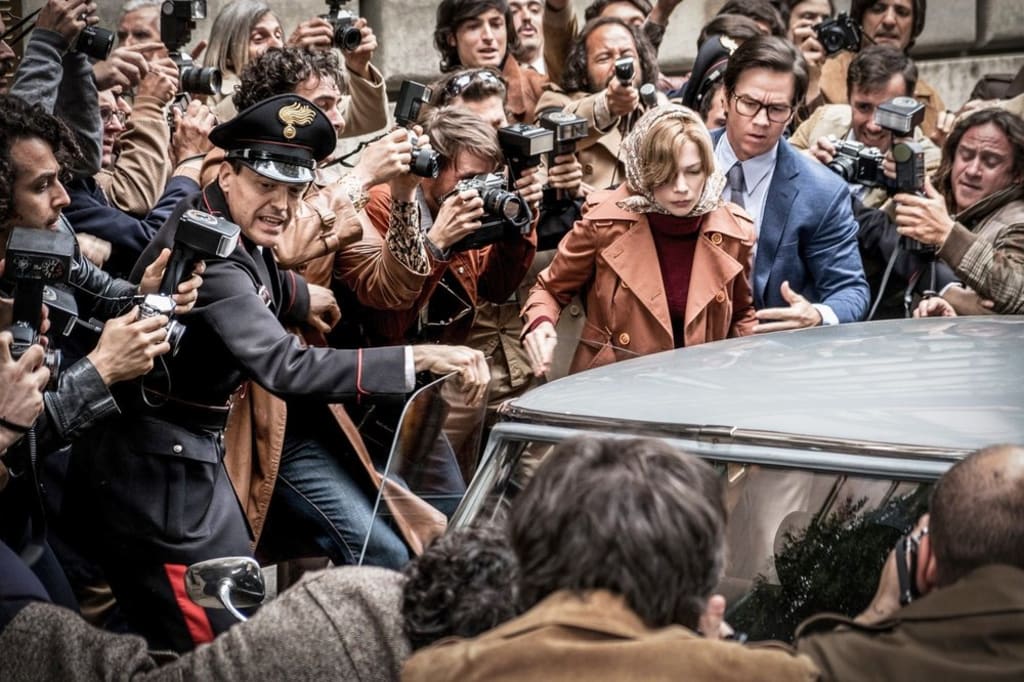Movie Review: 'All the Money in the World'
Christopher Plummer and Ridley Scott pull off a cinematic switcharoo miracle.

Don Shanahan is an elementary educator who is also a press credentialed film critic in the Chicago area and one of the founders of the Chicago Independent Film Critics Circle. Combining those lenses together, his site is "Every Movie Has a Lesson" and he writes film reviews with life lessons in mind from the serious to the farcical.
'All the Money in the World'
5 STARS
Before the new year arrives and we all start a diet we’re not going to keep, let’s bring out the food analogies for All the Money in the World. The meat and potatoes of a proper kidnapping film are, more often than not, the proverbial chase, mystery, and waiting game. The act of the snatch-and-grab crime is a mere appetizer or aperitif to the slow-roasted chess match of what actions, decisions, and sacrifices will be required to recover the loved one or influential mark.
Director Ridley Scott borrowed a torn recipe page from headline history with the intention of presenting a five-course narrative meal. The executive chef had to change out a key dish at the last minute before plating only to arrive at an even better cinematic dining experience than one thought possible. All the Money in the World delivers on the promise of scintillating and satisfying tension in every bite and one of the most delicious portions of big-screen villainy this year.
Playing with dramatic license, All the Money in the World, written by David Scarpa (The Last Castle), draws its inspiration from the 1973 kidnapping of John Paul Getty III. The 18-year-old was shoved into a van on July 10th perusing the Piazza Farnese and its prostitutes in Rome at three in the morning. Chief among his captors was the low-level mouthpiece, Cinquanta (talented French actor Romain Duris of The New Girlfriend making his American debut), who chained him up in a mountainside farmhouse in Calabria and set the ransom at $17 million.
That was a high sum for an expat rich kid by any standards, but this teenager was the grandson of the richest private individual on the planet: John Paul Getty. Played by Academy Award winner Christopher Plummer, this billionaire oil tycoon was notorious for his cutthroat shrewdness in matters of money. Convinced showing weakness with a quick check and extorted loss of millions will only put a target on the back on his fourteen other grandchildren, Getty coldly refuses the ransom.
Walking among his antiquities and ticker tape machines, Getty may have had the ambivalence to play hardball, but the boy’s agonized mother, Gail Harris (Michelle Williams, thrust into another emotional wringer role), did not. Relenting mildly and feigning admiration for his heir and his destiny, Getty sicced one of his security advisors, former CIA operative Fletcher Chase (Mark Wahlberg, greatly suppressing his Boston action hero tendencies), to lead the negotiation and retrieval efforts. With each demand and new development, the risks escalated only to have the old man’s cash-clenching fist grow tighter.
Chef de cuisine Ridley Scott employed his trusted and talented detail of sous chefs to mastermind this sharply effective thriller. Working with Scott for the twelfth time and sixth time respectively, production designer Arthur Max creates the 1970s period details, from cavernous mansions to sumptuous Italy, to perfection, and cinematographer Dariusz Wolski puts the mint and the marred menu of visuals into equal, inescapable focus. Composer Daniel Pemberton, in his second go-round with Ridley, squeezes the aesthetics together like a musical anaconda with an appropriately ominous score. Tarnishing opulence never looked so good.
The greatest tablecloth pull performed at this movie dinner party was the storied recasting of Christopher Plummer to replace the maligned Kevin Spacey a month before the film’s release. This wasn’t a three-scene cameo. The Getty character and his history are woven throughout this film, which required reshooting, re-editing, and re-scoring, among hundreds of other moving parts. What Ridley Scott and company accomplished was nothing short of a miracle, and you will see why this film was worth saving.
As talented as Kevin Spacey is (despite the headlines, do not use the past tense “was”), Christopher Plummer is monumentally impressive and worthy of topping anyone’s Oscar ballot for Best Supporting Actor. The 88-year-old legend has an unmatched level of screen presence to richly play a man of reticent decadence and iron resolve. Every Charles Foster Kane-esque gaze is chilling. Every line delivery is nail-biting. Unimpeded by distracting makeup, Scott’s original choice to play the role went out and nailed every possible tick, foible, and slithering scale necessary to play that character. He may have been the replacement course, but Plummer becomes the centerpiece dish.
Lesson #1: What would you do?
Every decision in a kidnapping film like this is weighed and measured against one’s own tolerances, strengths, and weaknesses. We constantly ask what we would do in similar unimaginable circumstances. That torture rack of emotional swings is both the attractive draw and the vehement deterrent.
Lesson #2: Rich people are cheap.
True to form and the man’s assertions, John Paul Getty did not get that rich giving away money in bad deals that saved personal face. A guy like that didn’t lose without winning something else in the defeat. Voracious acquirers of wealth like him are really cheap old bastards when you get down to it. To hear Plummer’s Getty talk about tax deductions, write-off limits, interest, and the simple notion of wanting more, you grow to despise this man, and it’s brilliant for the film’s suspense.
Lesson #3: The Ted DiBiase Rule
One cannot tiptoe through Lesson #1 and Lesson #2 without the axiom of former WWE superstar “Million Dollar Man” Ted DiBiase coming to the moral and pragmatic forefront. Everyone has a price. The grandson did. Getty did. Gail did. Even the kidnappers did. No one can escape their limit. Whether you can admit it or not, circumstances like All the Money in the World make DiBiase’s catchphrase irrefutably true. Money stands for something, more or less. The reveal of the importance of that something and its price is the most telling trait of all.
About the Creator
Don Shanahan
Don Shanahan is an elementary educator who also is a credentialed film critic in Chicago. His site is "Every Movie Has a Lesson" and he writes film reviews with life lessons in mind from the serious to the farcical.







Comments
There are no comments for this story
Be the first to respond and start the conversation.